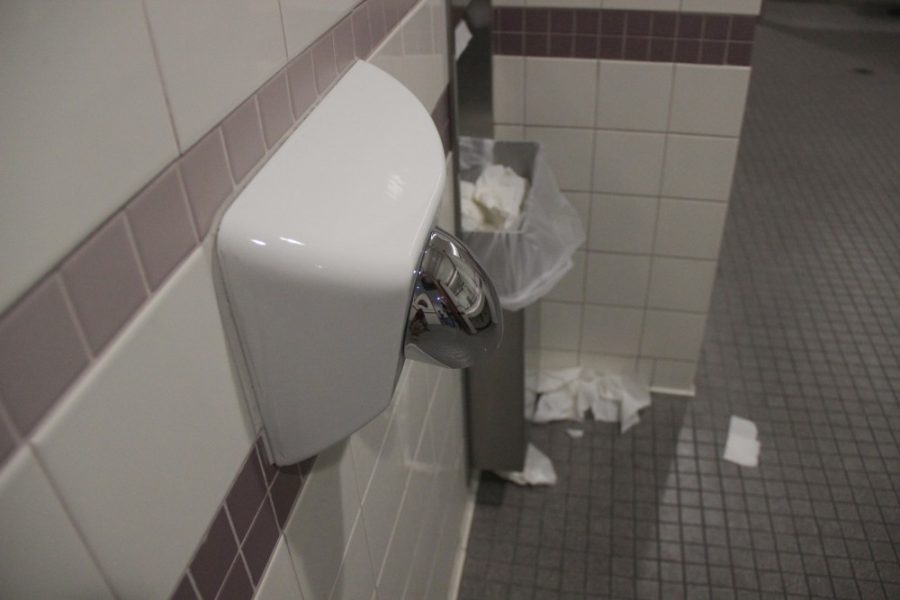All around the University of Arizona campus, in almost every single bathroom, you will find trash cans overflowing with a sea of half-used paper towels and many of them end up on the floor. Since moving into the dorms, I have seen the paper towel devastation firsthand every day. Aside from them being incredibly messy and gross for the custodial staff, paper towels also environmentally wreak havoc.
According to the Dr. Greene website, “to make one ton of paper towels, seventeen trees are cut down and 20,000 gallons of water are consumed,” and, also according to the Dr. Greene website, the U.S. creates 3,000 tons of paper towel waste per day. That’s 51,000 trees and 60 million gallons of water per day. That’s absolutely insane, right? I began thinking of solutions, and my thought process immediately led me to hand dryers. To my surprise, hand dryers aren’t as universally welcomed as I had assumed.
I’ve been in bathrooms on campus that have both hand dryers and paper towel dispensers, which does not cease to blow my mind whenever I think about it. According to Chron, on average, 12 packs of 250 paper towels costs $30, and “medium operations can expect 150-200 uses per day,” meaning that you’d probably go through more than one pack of paper towels per day, per restroom. Imagine that on the university’s scale, where even the dorms are using paper towels. According to the same article, the average U.S. cost to run a hand dryer per month is about $14.58.
Obviously putting that, again, on a university scale will alter the outcome; however, hand dryers save millions of dollars in production, resources and maintenance, which includes custodial staff who so kindly deal with the pile of wet germs on the floor, and when people flush paper towels down the toilet and cause pipes to back up. Here’s another thing: The burning of the Amazon rainforest got a lot of people’s attention this year, and of course it is terrifying and awful; however, huge sections of rainforests around the globe are destroyed every year to make paper products such as paper towels, which, as you’ve probably figured out by now, Americans use a lot of. My point is, on top of the cheapness of dryers, the fact that they don’t harm trees and keep bathrooms tidier are very impactful bonuses.
I did a bit of quick searching and found the problem: Most people believe that hand dryers are petri dishes of disgusting disease, and that alone should prevent people from using them. However, this idea has been heavily debated. According to UA’s own Charles P. Gerba, a professor of microbiology, environmental sciences and public health, “the hot air [from hand dryers] will kill the bacteria on the hands, but some studies have found they will also deposit bacteria in the restroom on your hands — i.e., from the air.” If you are petrified about hand dryers getting bacteria on your hands from the existing air, I have some bad news about what humans breathe in. Also, a study conducted by The Mayo Clinic in 2000 showed no notable difference in germs spread by paper towels against hand dryers.
I would like to see the UA change its ways and strive toward environmental friendliness. The first step is choosing hand dryers for our bathrooms — the economic, environmental and logically correct choice.









